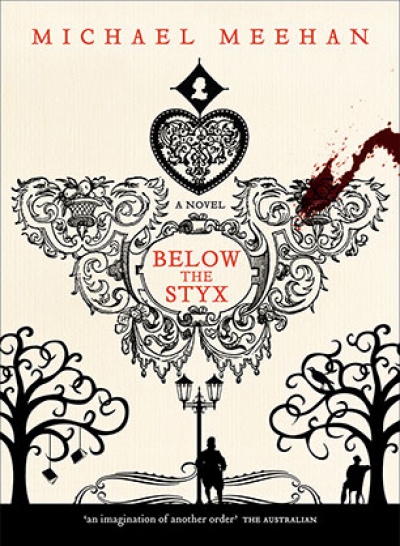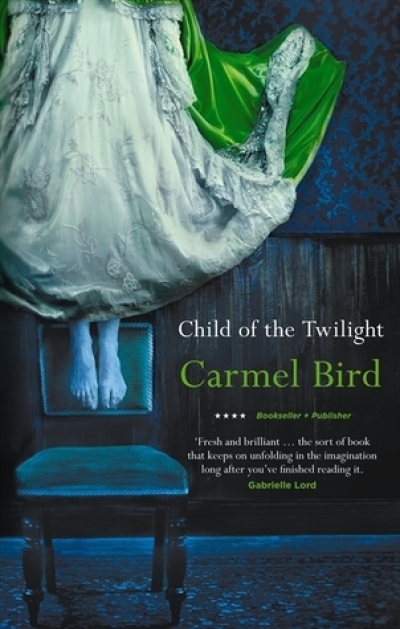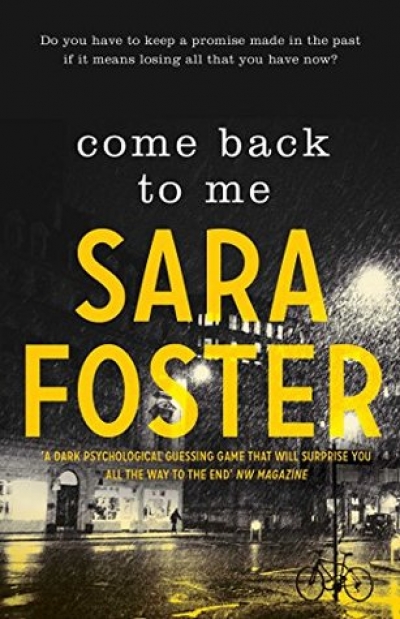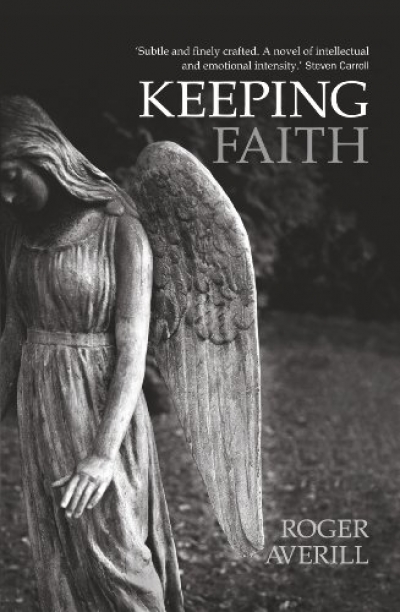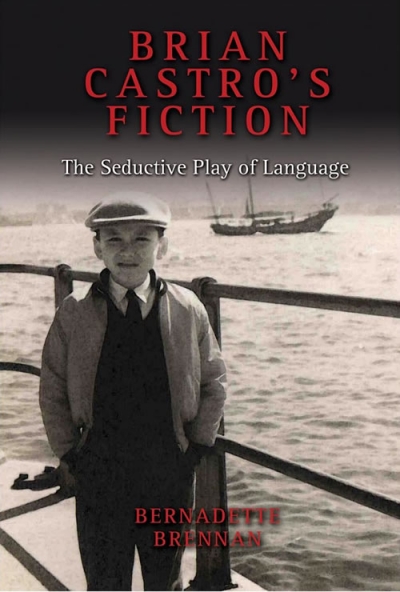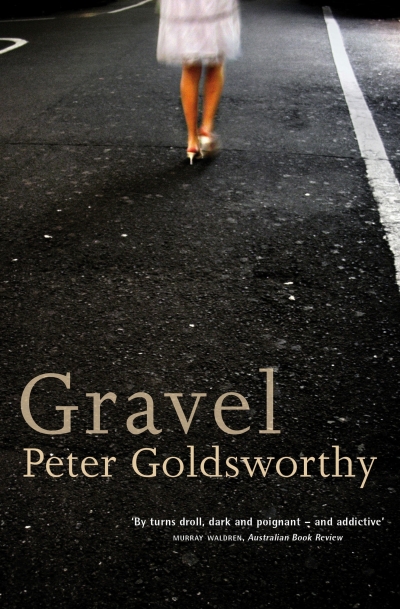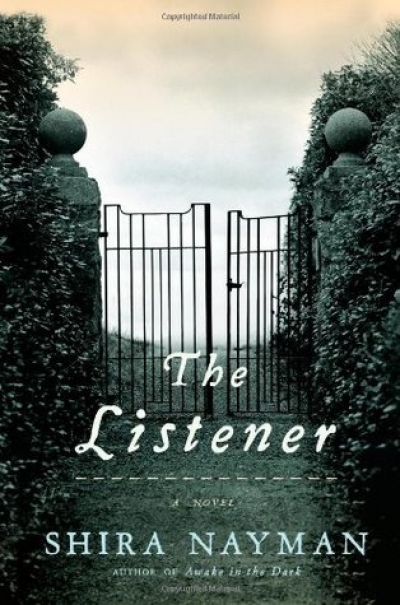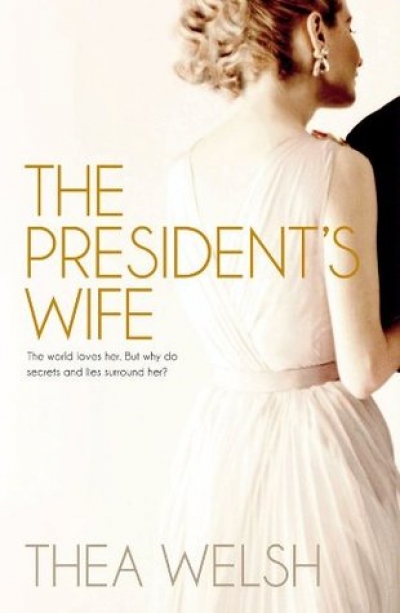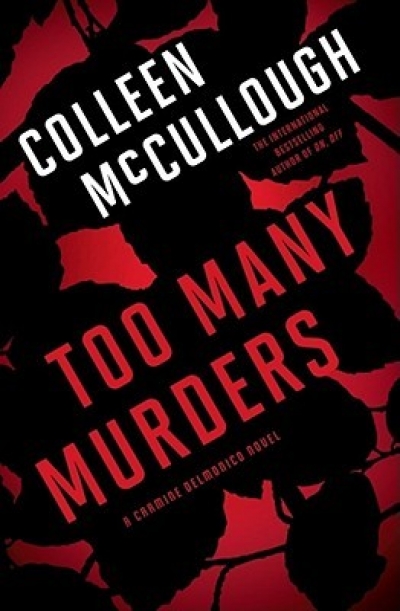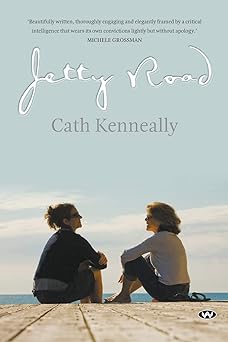Fiction
'What’s in a name?’ as C.J. Dennis and Shakespeare asked. Maybe much, as in nomen: omen – maybe naught, as in the case of the narrator Michael Meehan’s fourth novel, Below the Styx. For this chap’s name is Martin Frobisher, a distinctive name that rings several bells. Sir Martin Frobisher (c.1535–94) was an English navigator who made three attempts from 1576 to 1578 to discover the North-West Passage, giving his name to a bay on Baffin Island and bringing back to England ‘black earth’, which was mistakenly thought to contain gold. He later served against the Spanish Armada and raided Spanish treasure ships.
Meehan’s protagonist would appear to have nothing whatsoever in common with his Tudor namesake, and his name may be a subspecies of that great Australian comic trope, the furphy. From the first page of the book, it is all but impossible to shake the conviction that ‘Martin Frobisher’ has a weighty significance, while it may in fact be empty, a linguistic terra nullius. It may be a Shaggy Dog, happily at home in this benignly witty and whimsical novel, which is also a murder mystery.
... (read more)The mystique of the Roman Catholic Church has been thoroughly exploited by the likes of Dan Brown and writers of the medieval monastic murder mysteries that gained a certain popularity following the English publication of Umberto Eco’s The Name of the Rose in 1983. Carmel Bird’s latest book contains a mystery, though not a murder. It is set mostly in 2001, but monks, convents, rosaries, black madonnas, and miracles fill the pages of The Child of Twilight, along with artificial insemination and air travel.
Sydney Peony Kent, the narrator, is the product of assisted reproductive technology, both of her genetic forbears being anonymous donors; her parents, habitually and oddly bundled together as ‘Avila/Barnaby’, are infertile. Sydney has a couple of imaginary friends, a Mexican nanny, and a collection of snow globes containing black virgins. And she writes novels.
... (read more)Suspenseful, heartrending, and transcontinental, Come Back to Me’s dynamic scenes extend from debauchery at an office part to a shocking outback crime. A complex psychological tale, Sara Foster’s début novel – forged from her years as an editor and a life lived in Britain and Australia – throws us head first into marital distress.
... (read more)Keeping Faith, Roger Averill’s first novel after his non-fiction debut, Boy He Cry: An island Odyssey (2009), is a quiet and resonant piece of work. Befitting a novel set partly in a labour ward and beginning with a description of a stillborn baby, it proceeds with the knowledge that finding the right words can be difficult. It speaks carefully and tactfully, in a spare language of great focus.
... (read more)Brian Castro's Fiction: The seductive play of language by Bernadette Brennan
Brian Castro has been leading his readers on an exhilarating chase since Birds of Passage in 1983, and his allusive, melancholy but sensual work leads Bernadette Brennan to being confidently: ‘Brian Castro is one of the most innovative and challenging novelists writing in English today.’ In her attempt to prove the justice of this assertion, Brennan is far too attuned to the richness of Castro’s work to try to establish any sort of total explanatory grid, and her book is less an attempt to tidy Castro up than a guide to some of the places where we might most profitably enjoy him.
One of the principal characteristics of Castro’s work, after all, is the ambition with which he calls out to his readers, inviting us to rise to the challenge and participate in the enjoyment of the dazzling multiplicity of issues, references, allusions, plays on words, and theoretical gambits that rub shoulders (and other parts) throughout his books.
... (read more)Peter Goldsworthy justly commands a seat at the big table of the Australian hall of literary achievement. This was underlined on Australia Day with his gonging as a Member of the Order of Australia for service as an author and poet. It is a prize that should glitter comfortably on the mantelpiece alongside the likes of his South Australian Premier’s Award, his Commonwealth Poetry Prize, his Bicentennial Literary Prize for Poetry, and his FAW Christina Stead Award for fiction.
For someone who has practised half-time as a writer and half-time as a GP for the past thirty-five years, his output is admirably prolific: eight novels, including one co-written with Brian Matthews, five collections of short stories, half a dozen poetry collections, two novels adapted as plays, two opera libretti, and a spot of essayistic Navel Gazing (1998). He has also done time on literature’s administrative front line, his committee stints including four and a half years as chairman of the Australia Council’s Literature Board. All of which mark him out as a littérateur of the first order.
... (read more)Shira Nayman’s first novel is full of echoes and resonances. There may even be an echo of Bernhard Schlink’s The Reader. Set at more or less the same time, The Listener has the same immediate backdrop: World War II, its atrocities and aftermath.
Two years after the end of the war, Dr Henry Harrison – the narrator and listener of the piece – encounters a man who will become his most memorable case. Dr Harrison is the director and chief psychiatrist of Shadowlands, a private mental hospital located at White Plains, not far from New York. The exclusive institution is grand, more of a country club than an asylum, with beautiful buildings, extensive woods and formal gardens. Inmates, though voluntarily committed, are known as ‘patients’, not the more egalitarian ‘clients’ or euphemistic ‘guests’ of the present day. Many of them are suffering from war neurosis, a condition that Dr Harrison has been treating for many years. During the war he was required to treat mentally disturbed or shell-shocked officers and to send them back, supposedly cured, to the front. This was to ‘staunch the wastage’, according to the army. Over time he has come to doubt the efficacy of this treatment. By researching complex cases such as that of Bertram Reiner, he seeks to refine his methods.
... (read more)It is surprising how many people seem to think that reviewers read only the first and last chapters of books to which they will devote several hundred words of critique. They look sceptical when informed that critics read every word of, and often go beyond, the featured book, searching out earlier works by the same author or books on the same subject by other writers. Thea Welsh being previously unknown to me, I have now read one of her earlier novels, and a memoir, but not her prize-winning first novel, The Story of the Year 1912 in the Village of Elza Darzins (1990).
The memoir, The Cat Who Looked at the Sky: A memoir (2003), was about ‘three cats, two households and the great truths of life’, according to the blurb. It does not appear to have much in common with Welsh’s new novel, The President’s Wife: Welcome Back (1995), however, was very relevant. Briefly, the novel is about Janey, an upwardly mobile Sydney woman who harnesses fierce ambition to more than one stroke of luck in her pursuit of a cherished goal. This is to become president of the charity committee that puts on Sydney’s social event of the year, the élite and glamorous Goldfish Ball. Although Janey is considered ‘too young’ and inexperienced, she is nevertheless successful. Her apotheosis occurs on the night to which all her efforts have been bent: seated on an elevated ‘throne-like chair’, she is ‘happily aware that she looked quite imperial in her emerald-and-pearl necklace and her green taffeta evening-gown’.
... (read more)A good detective series depends on the author’s ability to devise canny plots with attendant clues and blind alleys, but of greater importance is the central detective who acts as a charismatic guide through the miasma of murder and mystery. There are many compelling detectives in crime fiction: think of Inspector Maigret, Hercule Poirot, Adam Dalgliesh, Kay Scarpetta and Stephanie Plum. However, with the exception of Sherlock Holmes and Dr Watson, and, more recently, Stieg Larsson’s Lisbeth Salander and Mikael Blomkvist, memorable couples are rare in the sleuthing game.
... (read more)Cath Keneally’s second novel, Jetty Road, is set in the beachside suburb of Glenelg, South Australia. Her subject is the relationship between two sisters in early middle age, and the narrative is fabricated from the daily happenings of their lives. Evie, the older sister by several years, has no children and ekes out a living in a number of part-time jobs as a child-care worker. Paula, matron of an aged care home, has two children: Bert, aged nineteen, and Rosie, six. Neither of the sisters is married.
... (read more)
